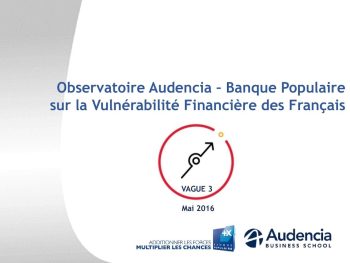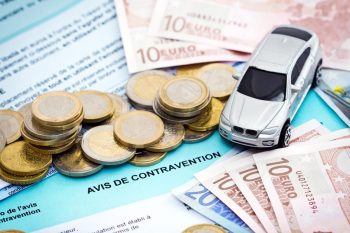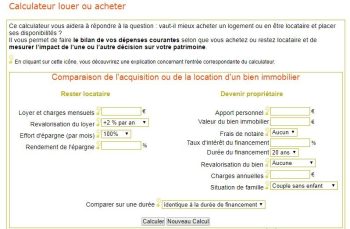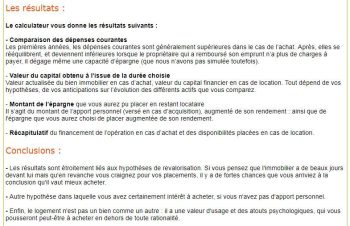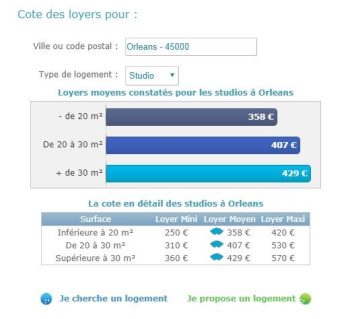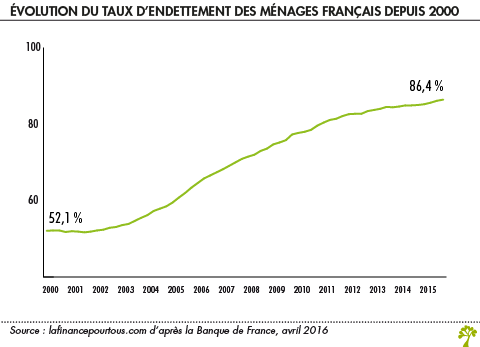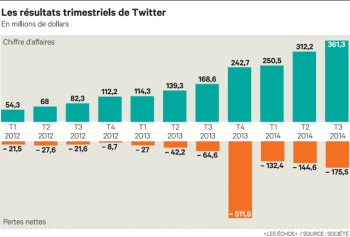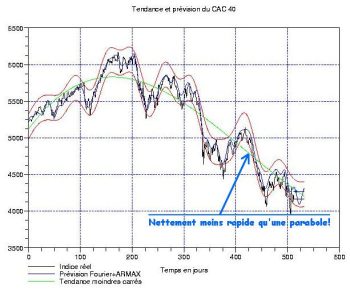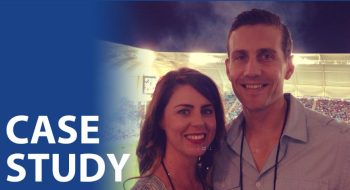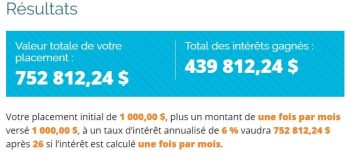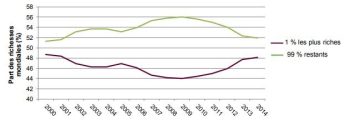…so many urban legends that persist in our society.
The problem?
Most of these ideas are wrong.
They often come from untruths, and act as brakes on enrichment. To manage your money correctly is to follow effective principles that make it possible to become rich. Together, let’s debunk these misconceptions about money and lessen the effect they have on your life. Here we go. Together, let’s debunk these misconceptions about money and lessen the effect they have on your life. It’s gone.
The truth is here:
A lot of what we learn about money in school is wrong.
It is for example the fact that betting on the financial markets (the stock market for example) is risky and that only a few individuals earn money there.
It is totally false. Investing in the stock market is even essential to becoming rich.
The consequence ?
These myths live on and do a lot of damage.
An example: recently, the Audencia Nantes business school carried out a study in collaboration with the Banque Populaire on the financial vulnerability of the French.
The results are distressing:
Purchasing power: the French have a poor understanding of the concepts that would allow them to optimize it.
Savings and investment: the survey shows that these two concepts are poorly understood.
Debt management: even bigger gaps.
Conclusions of the Survey on the Financial Vulnerability of the French
Audencia Nantes & Banque Populaire study
The conclusions of this investigation are frightening.
I decided to learn a lot about money. If I want to stop working, I have to!
It is often said that the unexpected kills any organization.
Indeed, what to do when you have water damage, your car breaks down or your TV gives up the ghost?
It wasn’t in your monthly budget, and as a result you’re going to have to incur an unexpected expense to fix what’s broken.
And if you don’t have that money in the account…
…it can get tough quickly.
The truth is that unexpected expenses can often…be planned for years in advance.
So, the idea here will be to prepare for the unexpected: every month, budget an Unforeseen expenses fund equal to approximately 10% of your salary.
This will be your emergency fund in case something goes wrong.
So, since you will have cash available, you will never have to wonder how to pay an unexpected expense.
AN EXAMPLE TO ILLUSTRATE…
We know that the oil change of the car is to be done every 12 to 18 months. We know that oil change costs X euros. Every month, I add in the bottom Unforeseen expenses between 1/12 and 1/18 of the price of the oil change. Thus, the day of the emptying no problem to pay!
You can even go further and create a dedicated budget that you call Anticipation emptying that you will come to feed every month.
Cars, these machines that can be expensive… (photo source)
Conclusion: before you start investing, make sure you have saved an amount equivalent to 3 or 6 months of expenses. If this is not the case, set up an automatic transfer the day after your pay to achieve this goal.
Should you buy or rent in 2015?
Should you buy or rent an apartment? A house?
Here is the answer :
Your situation, your goals and your mobility in the future can tip the scales to yes or no. As a result, this myth that renting = throwing away money is absurd.
If you are going to move a lot in France and abroad because of your work, and salary increases are to be expected, then renting can be an ideal situation : you will have the freedom to live where you want, without any ties. .
On the other hand, if your goal is to start a family, and your job has very little chance of making you travel, then paying rent is useless: you might as well use this rent to repay a monthly loan payment for your main residence. .
RENT OR BUY: KNOW THE ANSWER IN 5 MINUTES TOP TIME
If you want to go fast, here is the ideal solution to know if you have interest in buying.
The tool that I am going to present to you answers the question: for me, is it more interesting to rent or to buy the accommodation in which I currently live?
In other words: is the monthly loan payment that I will pay to buy the property lower or higher than the rent?
Let me introduce you to the Homeowner or Tenant Calculator
It is supported by the Institute for Public Financial Education, an association approved by the Ministry of National Education.
The interface is very clear, the form rather easy to fill out:
By entering some data, we get results immediately:
So in this specific case, it is better to buy because the value of the property exceeds the value of the savings after 20 years.
In addition, the monthly payment is clearly lower than the rent of the apartment (486 € against 650 €).
Thus, with this tool, in a few minutes, you can obtain a statement of your financial situation at 20 years and determine in a few seconds whether it is better to buy or rent.
This tool can therefore help to get an idea of the choice to be made, especially if you also plan to invest in rental real estate.
Buy or rent your main residence? Today I found what was best for
But that’s not all :
A host of other variables come into play.
Variable #1: property maintenance costs can cost you thousands of dollars over 20 years
Since in case of purchase, you are the owner, you must assume the responsibilities.
Maintenance, renovation and various taxes reserved for owners will now be required.
Among these new costs:
These are all new costs that need to be factored into the equation.
We are lucky, the calculator presented just above takes these costs into account: it is the expense called Owner Charges.
Variable #2: the price-to-rent ratio, the most important indicator to determine whether it is better to buy or rent (and how to calculate it in 2 minutes)
Often it happens that the monthly repayment of the loan is lower than the rent that you would have paid as a tenant.
Financially, you thus relieve yourself of a few hundred euros per month by buying.
We then say that the price-to-rent ratio is positive: renting would have cost you more than buying the property.
But sometimes that is not the case.
How to know ?
Quite simply by studying the market with a very widespread tool: LeBonCoin.
And two tools:
For example with this studio found on LeBonCoin:
The price is €42,000 gross of notary fees. Also, we are a little lucky, the seller does not want to go through an agency:
Next, on to the calculations:
This step will only take a few seconds.
Go to the InfoLessor simulator.
And in a few seconds, we get the following results:
And boom! We now know that our 14 square meter studio in Orléans should rent between €270 and €400, with an average of €349.
As it is a small studio, the rent will be rather close to 270 €. Let’s take 300 € because the equipment looks in good condition.
Conclusion :
Still with our Orleans studio, we have a purchase price of €42,000.
For this type of rather inexpensive apartment, the notary fees are equivalent to approximately 10% of the purchase price.
We can therefore start with €4,200 in notary fees.
That is a total purchase cost of 42,000 + 4,200 = €46,200.
Now it’s time to calculate the monthly loan payment that we would have to pay in case of purchase of the property.
For this, let’s still use a magic tool for calculating the monthly payment of a loan.
By validating, we immediately obtain these figures.
Conclusion: borrowing for this property will cost me €255.26 monthly.
Thus we have:
Immediately, we notice one thing:
Buying this property costs less monthly than paying a rent.
We would therefore tend to want to buy the good.
We would therefore earn money since instead of a rent of 355 €, we would simply pay a monthly installment of 255 € but this money would not be thrown out the window : it would enrich you each month.
This is not always the case: some cities (notably Paris) are experiencing such a surge in real estate prices that renting is often cheaper than buying.
It is therefore in your best interest to do the calculation and make the right choice.
Buy or rent: set your 10-year goal before making a decision
There is also a very important criterion:
Do you still see yourself in the same city? To do the same job?
Answering these questions is essential: moving when you have already purchased your main residence could have serious consequences.
For example, the tax authorities do not really like it when the taxpayer buys his main residence with significant aid (PTZ+..) to, a few years later, put this property up for rent.
So as not to put yourself in danger: only buy if you are sure that you will not be geographically mobile in the next 10 years!
The truth is that debt is the best way to get rich.
But before I tell you why…
Why saying “I’m in debt” is very often frowned upon by your loved ones
Banks often have a good back among the middle class.
They are criticized for lining their pockets and not serving the economy.
The consequence is that they have a bad image and their products (including mortgages) are very badly seen.
This is where the rub is: home loans are the best thing for us investors.
And yet:
The latest study by the Institute for Public Financial Education is clear:
School teaches little about money and helps such urban legends persist.
In truth, there is what is called good debt and bad debt.
To find the definition of these terms, you have to look in Canada:
Borrow only for things that have lasting value.
“Good debt” is an investment in something that increases in value or is profitable in the long term. It’s “bad debt” when you borrow to buy something that immediately decreases in value.
In another style, Robert Kiyosaki propagates the same message:
Robert Kiyosaki Lecture 60 Minutes to Getting Rich
I am rich, and yet I have debts that I don’t know what to do with. These are just “good debts”.
Conclusion: borrow only in order to earn more money. Not to finance objects that bring in nothing (ex: car)
Browsing through Twitter, we often come across things like this:
Of course you have to play on the stock market for money that you can lose.
On the other hand, banks do not have unlimited power.
And it is very rare to lose a lot of money in the stock market.
The truth is that those who invest in the stock market generally get huge returns.
Mathieu Bouville, recognized academic and author of “Your money deserves to bring you more” even advances the following postulate:
Mathieu Bouville Your money deserves to earn you more
Stocks double your purchasing power in ten years on average
Nothing to do with the myth?
With the right asset diversification, and a good method of evaluating a company on the stock market, you increase your chances of winning on the stock market.
To make matters worse, here is the performance of the CAC40 over the past 2 years:
Thus someone who had invested in a financial product replicating the CAC40 (this is called a tracker ) would have seen, in the worst case, a substantial gain of +12%. In the best case, this 12% would have turned into + 31%.
+12%
Perf. mini CAC40
+31%
Perf. max CAC40
Conclusion: by investing correctly in the stock market (that is to say by diversifying your money in several sectors and currencies), it is very difficult to lose money.
Many people see budgeting as a constraint…
…and especially as a way to hurt yourself.
Indeed, it can be difficult to say to yourself: “this month, I cannot spend more than 150 euros on groceries”
There is a form of deprivation that many people reject.
Here is the problem in this approach:
There is a fundamental error in the definition of what a budget is.
Accordingly, the role of the budget, which is to help:
…is totally ruined.
The solution ?
Changing your definition of what a budget is: it’s not depriving yourself, but rather it’s a way to achieve a bigger and more important goal, that of your financial independence.
Once this psychological change is made, the effect is simply amazing.
On this subject, let me introduce you to Steve & Mary. They are Australian and live in Brisbane.
At the beginning of 2014, they were coached by the wealth management advisors of Rothgard Financial Partners and as such a drastic budgeting regimen was required of them.
Every dollar of this couple’s salary was dedicated to a task: paying off the loan for the house, the car, the electricity, the water…
But that’s not all :
The objective of these upheavals was clear: to improve the couple’s financial situation at first, then to release a surplus of money allowing them to create a safety cushion in the event of a hard blow.
Thus, this budgeting has made it possible to see the future with more clarity, and above all to guarantee a healthy financial situation.
Bottom line: Budgeting just to track expenses is pointless – what’s important is the budget’s role in the bigger picture, your journey to financial independence.
It is commonly accepted that to generate an annuity equal to 2 monthly minimum wage, €600,000 correctly invested is enough.
The biggest task is therefore: how do you manage to accumulate such a sum?
Quite simply thanks to a little secret that you will never be told on TV:
Compound interest.
This term is so incredible that here is what Albert Einstein said about it:
Albert Einstein Renowned Scientist
Compound interest is the greatest force in the entire universe.
Pretty impressive, no?
Now let’s see what compound interest is and how you can use it to get rich without hard work. Here is a definition:
A capital is said to generate compound interest when the interest obtained in year N is integrated into the capital to produce new interest in year N+1.
In other words: to arrive at an annuity of €600,000, there is no need to save this amount!
The interest generated each year will be incorporated into the capital and will in turn generate new interest.
Simple interest and compound interest therefore have a closely related role.
To arrive at €600,000 in annuity, you will actually only need around €300,000 in savings as shown by the compound interest calculator from GetSmarterAboutMoney (Canada):
,000 monthly for 26 years paid at 6% per year
The green part is that represented by compound interest. Rather remarkable, isn’t it?
To arrive at a pension of €750,000, you only need to save 748,000 – 436,000 = €312,000, i.e. less than half of the pension!
Conclusion: the smallest savings can generate enormous interest in the long term. So don’t neglect to save every month, even if it’s small amounts.
Often, in the press, the rich are criticized because they aggregate all the wealth.
Reports, such as that of OXFAM, an organization fighting against inequality and poverty, go further on this type of declaration with the report Insatiable wealth: always more for those who always have everything:
With such graphs, it is normal for the general population to be alarmed.
However :
You have to ask yourself why. Why is there such a difference?
Quite simply because the rich create value for others.
It is the real estate investor who will buy an apartment and allow a family to live in the city centre.
It is the stock market investor who takes the gamble of risking his money in a start-up in the hope that a product will come out tomorrow to make people’s lives easier.
It is the entrepreneur who, thanks to his risk-taking, creates his business and at the same time many jobs that will allow many families to live.
For all these reasons, the rich are rewarded with the acquisition of money.
The money I earn reflects the value I have created for others!
Click to tweet this message
In exchange for these good deeds on the part of investors and business leaders, the State grants many tax benefits often called tax loopholes.
This is the case in furnished rental real estate where it is possible not to pay tax for a very long time thanks to accounting depreciation : in exchange for this tax benefit canceling the tax, students can take possession of housing fully equipped at Airbnb .
Conclusion: the rich accumulate a lot of money for a very simple reason, they have been able to create value for others.
When we talk about money, what is commonly accepted is the following:
It is very hard to earn money, but super simple to spend it.
Spending appears as a way to indulge oneself by mobilizing others to satisfy one’s own needs…
…and therefore to be happier.
In fact, a recent study from Harvard Business School shows that what money is spent on has a major role in how happy the spender feels .
In other words: not all expenses generate the same amount of happiness in the individual.
There are expenses that allow you to be very happy…
…and others that are just decoys.
While it is commonly accepted that people with a lot of money are often happier than others, our study shows that the way money is spent also plays a major role in acquiring a state of happiness.
Dr. Michael Norton
Professor at Harvard Business School and author of the study Prosocial Spending and Happiness: Using Money to Benefit Others Pays Off
The big question is then: what are the expenses that generate the most happiness?
The study shows that the type of purchase that generates the most happiness is when it comes to purchasing experiences, such as travel.
You can activate the French subtitles, by pressing the CC button
Thus, your spending on pleasure must in priority be reserved for spending that provokes experiences: such as travel, learning new skills, music, art… it is in these areas that the happiness generated by the spending of your money is maximized.
In addition, another study by Princeton University shows that from a certain level of salary, the state of happiness felt by the employee is capped:
We have noticed that from ,000/year, there is no longer any improvement in the level of satisfaction and happiness felt by the employee.
So money doesn’t buy happiness…especially if you’re paid well.
Conclusion: Money in itself does not really generate happiness, it is rather the way in which it is spent that triggers a state of satisfaction especially if it is used to acquire experiences. In addition, beyond a certain salary, being better paid does not make you happier. Money alone does not bring happiness.
Often it is customary to blame others if:
The problem is rather:
Do these indicators really have a consequence on my objective, financial independence?
In reality, not really. We continue to apply our strategy (invest every month) until we reach an inflection point where working is no longer a necessity.
An example of the agitation on BFM TV.
All these indicators are just noise: it is the media that confuses us.
Continue your financial independence strategy and don’t look around.
Use the magic of compound interest (discussed above) to generate an annuity that grows on its own.
I’m not the economy…what matters is achieving my goal: financial independence!
Click to tweet this message
Conclusion: eliminate this limiting thought that it would be the State or the world organizations that would manage your money. This is false: you are the only master on board.
Through these 9 myths, I have given you a transversal vision of all the notions necessary to adopt an investor’s state of mind and get rich: forget everything that the middle class thinks about money in society, because these are not the right principles and this is mainly why the middle class is not rich.
Your turn now !


